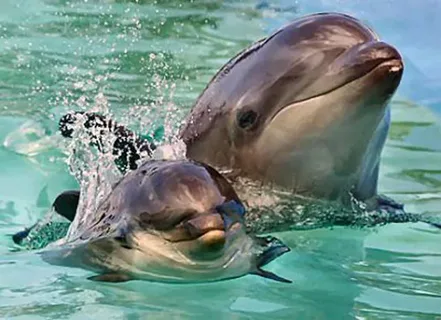Dolphins have captured human interest for centuries, appearing in culture, mythology, and scientific research. Their charm, friendly nature, and complex communication abilities make them one of the most admired ocean species on the planet. Understanding dolphins helps us appreciate their importance in marine ecosystems and highlights the need to protect their natural habitats.
Physical Characteristics of Dolphins
Dolphins have streamlined bodies designed for speed and agility in the water.
Intelligence and Communication
Dolphins communicate using whistles, clicks, and body movements, creating a unique language system within their pods. They use echolocation, a natural sonar technique, to locate food and navigate underwater. This ability allows them to send sound waves and interpret returning echoes to understand their surroundings.
Their teamwork and loyalty make them one of the most socially developed species in the ocean.
Diet and Hunting Techniques
Dolphins are carnivores, feeding mainly on fish, squid, and crustaceans. They use creative hunting methods to catch their prey. Some dolphins drive schools of fish into tight circles, making them easier to capture. Others work in groups to surround prey or use echolocation to locate food hiding in sand or rocks. Their efficient hunting strategies show intelligence and cooperation, helping them thrive in various ocean environments.
Natural Habitats and Distribution
They migrate depending on food sources and water temperature, adapting well to changing environments.
Threats to Dolphin Survival
Conservation efforts are extremely important to protect dolphins and ensure they continue to thrive in the oceans.
Human Interaction and Importance in Culture
Dolphins have a long history of interaction with humans. In some cultures, dolphins symbolize good luck, protection, and freedom. Dolphin research has contributed to scientific knowledge about animal behavior, brain development, and communication.
The Role of Dolphins in Marine Ecosystems
Dolphins play a vital role in maintaining the health of ocean ecosystems. As predators, they help control fish populations and keep the marine food chain balanced. Their behavior influences the movement of prey species and ensures natural diversity
Conclusion
Dolphins remain one of the most remarkable and beloved creatures in the ocean. Their intelligence, social nature, and incredible adaptations make them unique in the animal kingdom. As threats to their survival continue to grow, understanding their importance becomes more crucial. Their presence reminds us of the wonders hidden beneath the waves and the importance of caring for our oceans.













Comments are closed